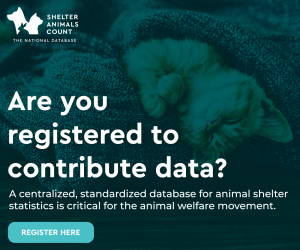People: Covid-19 Shelter Toolkit
Resources for shelter staff, volunteers and clients

Daily Updates | Animals | People | Community Planning | Usable Communications
General recommended practices for staff and volunteers
- Employees who have symptoms of acute respiratory illness are recommended to stay home and not come to work until they are free of fever (100.4° F [37.8° C] or greater using an oral thermometer) for at least 24 hours, without the use of fever-reducing or other symptom-altering medicines (e.g. cough suppressants).
- Handwashing really works. Regular and frequent handwashing for at least 20 seconds with soap and warm water before eating, after using the bathroom, after coughing or sneezing and after touching dirty surfaces is important. Use an alcohol-based hand sanitizer if soap and water are not available and there is no visible dirt on your hands.
- Practice good coughing and sneezing etiquette (using the inside bend of your elbow). If you use a tissue, use it once, throw it in the trash and then wash your hands.
- For more information on how to minimize/mitigate workplace exposures, read the CDC’s Interim Guidance for Businesses and Employers to Plan and Respond to Coronavirus Disease.
- Read how Dakin Humane Society in Massachusetts is caring for the pets of COVID-19 victims
How to prepare at animal shelter
- Shelters and rescues should be prepared for possible increased intake. While mass intake is not likely, community members that contract the virus and become hospitalized may not have family or friends that can care for the patient’s pets.
- Steps to prepare for possible increased intake:
- Have a long-term foster contract on hand.
- Reach out to foster network and identify those available for fostering and maintain updated list.
- Prepare talking points for staff on the virus.
- Prepare a facility plan.
- Provide regular updates to staff.
- Have extra crates, food and other pet supplies on hand to accommodate increased intake and provide supplies to foster network.
- Check in with Emergency Management for community plan.
- Create a coalition of relevant groups involved with pets: pet stores, training facilities, veterinarians, etc., and keep open communication to share resources if needed.
- Prepare for staff illness:
- Strongly encourage your team members to stay home when sick; this includes volunteers as well as staff
- Communicate plan with volunteers so they are informed regarding expectations. Check availability of volunteers who can assist in a staff shortage.
- Connect with local boarding facilities, surrounding shelters and rescues and communicate plans
- Sample sick staff guidelines from Humane Rescue Alliance
10 Minutes with the experts: The CEO perspective from behind the computer
Resources
Mask use 201
Worms & Germs blogger Dr. Scott Weese discusses everything you need to know about mask use in veterinary settings.
Guidance for community cat caregivers during shelter in place orders
Alley Cat Allies reports there is no indication that ongoing feeding and care of community cats is prohibited under the current orders in the 50 states and the District of Columbia.
How to lead from behind a computer
Cleveland Animal Protective League CEO Sharon Harvey shares practical tips for learning the skills needed to lead a shelter from home.
Documentation of essential services for caretakers
Some organizations are issuing documents to colony caretakers in their jurisdiction confirming that the services they provide are essential and being performed in conjunction with the organization. See this example from Maui Humane Society.
Safety fliers in English and Spanish
Pima County created these fliers in English and Spanish for both Pima Animal Care Center and Pima County Animal Protection, advising their visitors on how to keep themselves and staff safe.
HSUS / Community Cats Voices Interview
Certified compassion fatigue educator Jessica Dolce explains ways to manage stress and anxiety during this time of no spay/neuter.
Engaging & Supporting Volunteers During Coronavirus
This Adisa training video shows leaders how to support and engage volunteers who may be sidelined right now.
Human Resources sample documents from Oregon Humane Society
- Social distancing policy
- Return to work employee health screening form
- Exposure process and notification language
- Emergency Paid Sick Leave Act (E-PSL) employee leave request form
- Emergency Family and Medical Leave Act (E-FMLA) employee leave request form
- EPSL & EFMLA eligibility comparison chart - Federal Leave Law comparison cheat sheet
- Return-to-work guide for employees (ppt)
- Return-to-work safety practices
- Supplemental work program guidebook - Details the process OHS used for identifying projects, work and training for employee who worked from home and were unable to perform their normal work, and includes a matchmaking process between department needs and employee needs
More resources
- Coping With Stress During COVID-19: Resources For Animal Care + Welfare Workers
- Disaster Planning training from the USDA
- Animal Care Emergency Programs from the USDA
- Animal Services' role in COVID-19 support from University of Wisconsin-Madison School of Veterinary Medicine
- Animal Services' role in COVID-19 Support from UC Davis Koret Shelter Medicine program
- Field Services Protocol for COVID-19 from Humane Rescue Alliance
- Update from NACA (National Animal Care & Control Association) - March 12, 2020
- Incident command SOP by Oregon Humane Society
- After action plan by Oregon Humane Society
- Long term foster agreement by Dumb Friends League
- Temporary foster contract by Michigan Humane Society
- Foster agreement for humane law enforcement by Humane Rescue Alliance
- Emergency Foster Exemption for Staff from Wisconsin Humane
- Sick staff guidelines from Humane Rescue Alliance
Clients
'Humane at Home' lessons for children from San Diego Humane Society
- Be safe with dogs
- Don't pet a dog who is ...
- The four L's: What's the best way to love wild animals?
- Adoption coloring sheet
"Shelter in place" activities from Marin Humane
Statements
Sample documents from shelters
Disaster Preparedness
- Incident command SOP by Oregon Humane Society
- After action plan by Oregon Humane Society
- Sample disaster plan for your pets from Humane Society of Pikes Peak Region
- Sample disaster plan for your pets from Michigan Humane Society
- Sample disaster plan for your pets in Spanish and English from Houston SPCA
- Sample emergency kit for your pets from Tampa Bay SPCA
- Disaster checklist from Arizona Humane Society
- Sample disinfecting schedule and checklist from Humane Rescue Alliance
- Cat colony manager authorization to feed during stay at home order by Maui Humane Society
- Sample protocols for shelters from University of Wisconsin-Madison School of Veterinary Medicine
- Sample resource MOU
Communications
- Sample staff talking points from Oregon Humane Society
- Task force response and facility plan from Michigan Humane Society
- Sample email communication to staff from Michigan Humane Society
- Sample email communication to staff from Oregon Humane Society
- Sample email communication to staff from Humane Rescue Alliance
- Sample Emergency Foster Exemption for Staff from Wisconsin Humane
Adoptions
- Process for remote adoption counseling by Humane Rescue Alliance
- Sample remote counseling logbook by Humane Rescue Alliance
- Sample adoption staff schedule by Humane Rescue Alliance
COVID-19 Daily Updates | Animals | People | Community Planning | Usable Communications



